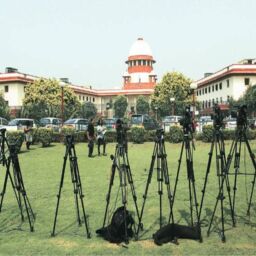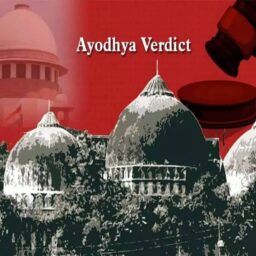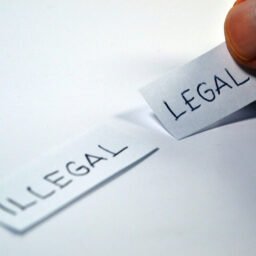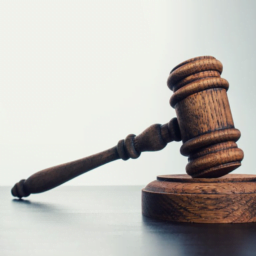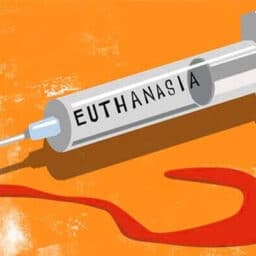Introduction
Unfair Trade Practices (UTP) are the various form of fraudulent, deceptive or dishonest form of practices by way of misrepresentation of goods and services, that are being dealt with in the ordinary course of business, which is prohibited or recognized under the law to be actionable by the judgements of the court. Broadly, UTPs involves fraudulent practices like misrepresentation, deceptive practices which are prohibited by laws. These unfair practices in turn adversely impact the business and economy as a whole and create such a market environment in which customers are regularly deceived and the welfare of the common masses and society as a whole suffers.
What are Unfair Trade Practices?
Unfair trade practices refer to those trade practices which, to promote the sale, usage and demand of goods and services, are involved in the usage of some unfair and illegitimate methods or deceptive tactics[1]. Major unfair trade practices prevailing in the market include:
- False Representation: Falsely claiming that particular good or service is of a certain standard, quality, quantity, etc. False offers relating to Bargain Price: Advertisements published in newspapers or other places showing that certain goods and services are published at bargain prices when they have no intention for the same to be offered at that such price.
- Free Gifts and Prize Schemes: Offers of gift and prize-giving schemes when the real intention is not the same and the prices of those products already increased by the cost of that scheme.
- Photo Retouching and False Claims: Many times, the cosmetics and weight loss commercial portray and claims false and non-attainable results to the consumers thereby giving false impressions about the true capabilities of products.
- Omission of Information: The advertisement of the products or services omits or skims fastly over important information. The ads claim to be technically true but omit information that is reasonably relevant and important for a reasonable customer.
- Hidden Fees and Surcharges: Many products and services charge hidden fees to trick non-cautious consumers into paying excess fees on the product than that mentioned in advertisements to increase their profits without raising its price[2].
In the context of India, till 2002 the Monopolies and Restrictive Trade Practices Act were leading legislation dealing with unfair trade practices in India. After it was repealed in 2002, the cases relating to unfair trade practices came under the purview of the Consumer Protection Act of 1986 (COPRA)[3].
Unfair Trade Practices in Education Sector
Education is one of the most vital ingredients in the economic and intellectual growth and development of a nation as it plays an important role in overcoming income inequalities and increasing the skills of the workforce. However, despite its importance, it has faced great neglect in terms of legislative and administrative measures to check corrupt and unfair practices involved in it.
With the rise of Private educational institutions in the form of Private Schools, Private Colleges and Universities and Private Coaching Centres and Tutorial Institutions, the Education Sector has emerged as a large business industry and like another field of business, Unfair Trade Practices have been found their home in Education Sector as well.
The various kinds of Unfair Trade Practices in Education Sector are as follows:
- Charging capitation fee and demanding donations for admissions;
- Admission of students without well-established merit criteria;
- Non-issue of receipts for fees charged by the concerned institute;
- Admissions through non-transparent and questionable admission processes
- Engagement of unqualified and ineligible teachers
- Publishing of advertisements for misleading students;
- Forcefully withholding degree for a compelling student for paying fees.
Time-limit for students to join the courses in colleges are advanced unrealistically to pre-empt students from exercising other options of joining other institutions of their choice;
Important Cases of Unfair Trade Practices in the Education Sector:
- Shaheed Bhagat Singh Public School v. Anoop Singh[4]: False Claims regarding the affiliation or any other amenities or qualification amounts to being engaged in unfair trade practice as such false claim deceives the innocent consumers and unfairly enrich those engaged in it.
- Seven Square Academy v. Chitra Lekha Nitin Bendke[5]: Arbitrary clause regarding non- refundability of fees deposited once used by educational institutions amounts to unfair trade practice on the part of such institutions. The aggrieved party is entitled to receive a proportionate amount of fees deposited for the services which have not been availed.
- Ebenezer Higher Secondary School v. Ashwini Kumar Sharma[6]: Falsely misrepresenting that the school or university is affiliated with the particular body to lure parents to admit their children on such false pretext amounts to unfair trade practice and the aggrieved are entitled to receive the refund of their fees deposited and appropriate compensation
- Buddhist Mission Dental College and Hospital v. Bhupesh Khurrana and Others[7]: Charging of Capitation Fee or Donations along with original fees and further denying receipts is an unfair trade practice. Along with this making false claims regarding facilities provided by the institution and charging for such facilities when they are not there also amounts to unfair trade practice and thus the aggrieved is entitled refund along with compensation.
- Sehgal School of Competition v. Dalbir Singh[8]: Charging the fees for more than one year together and using arbitrary clause of the non-refundability of such amount of the aggrieved find the services deficient is an unfair trade practice and the aggrieved is entitled to receive the proportionate amount whenever he seeks to cancel the admission for the rest duration when he does not avail such services.
The Way Ahead: Remedies and Suggestions
- Removal of Deficiency:
One of the remedies that a consumer has against the institution engaged in unfair trade practices by way of deficiency in services is to make it remove the defect in that service through an order passed by the appropriate authority.
- Refund of Fees and other amounts:
An order for a refund of fees and other amounts deposited in the institution despite the clause of non-refundability is one of the most used remedies in cases of Unfair Trade practices by bringing order of authorities through suits.
- Award of Compensation:
Another remedy for Unfair Trade Practices is awarding of compensation for the loss whether physical, mental or other because of such engagement of the concerned institution.
- Discontinuance of Such Unfair Practice:
An order for discontinuance of such unfair trade practices by the alleged institute through the order of appropriate authority and the subsequent discontinuance is another remedy for Unfair Trade Practices.
Conclusion
With the growth of trade and commerce around the country due to rapid globalization and modernization, Unfair Trade Practices have also found their place in such growth. It can be concluded from the above research and case study regarding the prevalence of Unfair Trade Practices in the Education Industry is just similar to that of other sectors like Food Supply, Medical and E-Commerce sectors.
There is a pressing need to combat these unfair trade practices by way of appropriate legislation and awareness measures as the current provisions and laws have not been able to keep a complete check on such practices. Also, there is a need to widen the scope of Unfair Trade Practices so that even the smallest of such practices can be scrutinized by the appropriate authority. There is a need for the common consumers also to be vigilant and bring to the notice of Consumer Commissions and Courts, those who engage in such practices so that this problem can be nipped off in the bud.
Author(s) Name: Shreyansh Rathi (Rajiv Gandhi National University of India, Patiala)
References:
[1] ‘Unfair Trade Practices’ (Merriam Webster) https://www.merriam-webster.com/legal/unfair%20trade%20practice Last Accessed 9 August 2021
[2] Andrew Cove, ’Kinds of Unfair Trade Practices’ (Covelaw, 10 February, 2017) https://covelaw.com/5-examples-unfair-trade-practices-avoid/ Last Accessed 10 August 2021
[3] Will Kenton, ‘Unfair Trade Practice’ (Investopedia, 27 November, 2020) https://www.investopedia.com/terms/u/unfair-trade-practice.asp# Accessed: 10 August, 2021
[4] Shaheed Bhagat Singh Public School v Anoop Singh 2012 SCC OnLine NCDRC 519
[5] Seven Square Academy v Chitra Lekha Nitin Bendke A/ 14/ 543 of State Consumer Dispute Redressal Commission
[6] Ebenezer Higher Secondary School v Ashwini Kumar Sharma Case No. FA/ 13/ 1975 of State Consumer Dispute Redressal Commission of Madhya Pradesh
[7] Buddhist Mission Dental College and Hospital v Bhupesh Khurrana and Others Civil Appeal No. 1135 of 2001
[8] Sehgal School of Competition v Dalbir Singh III (2009) CPJ 33





